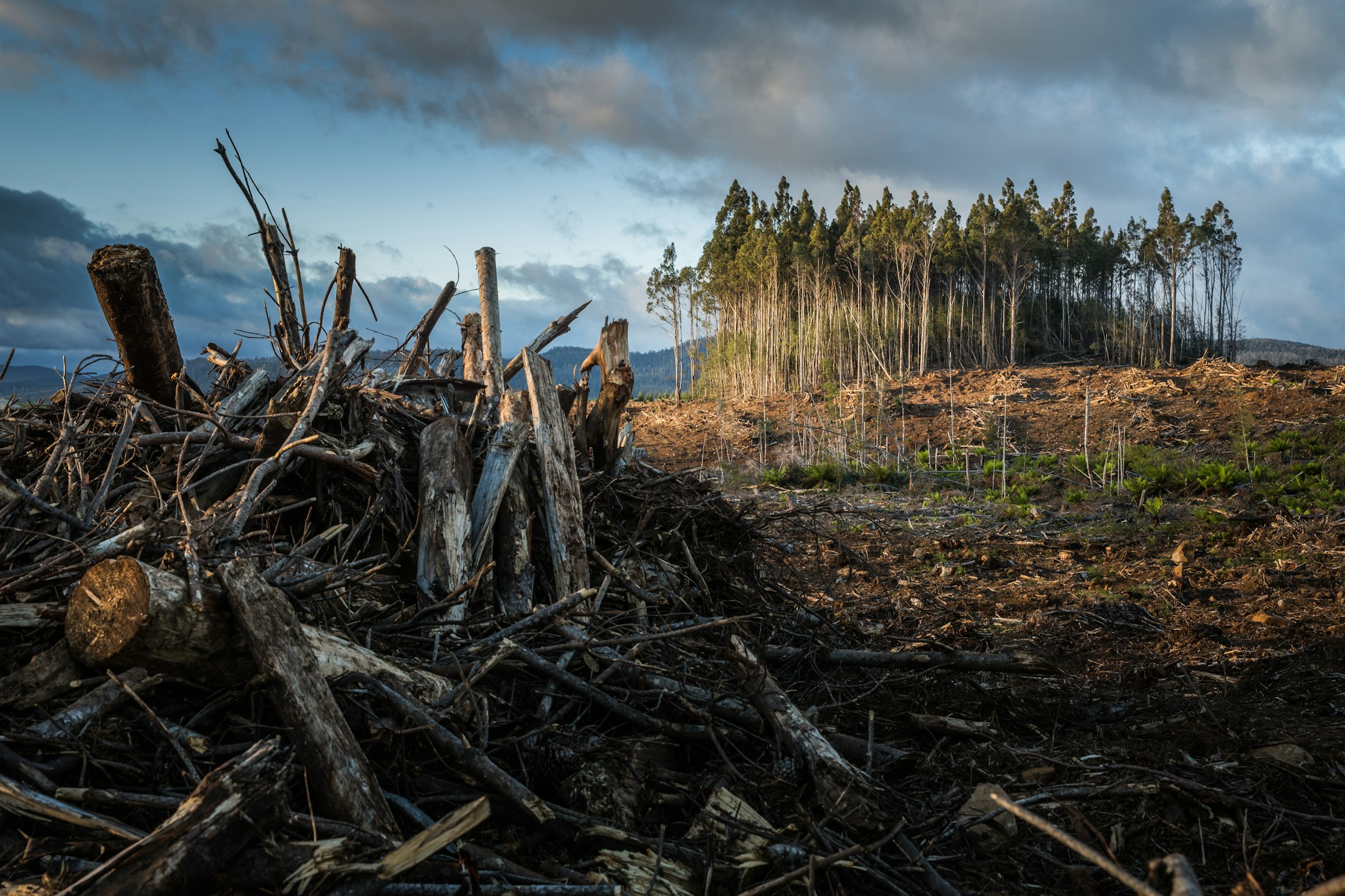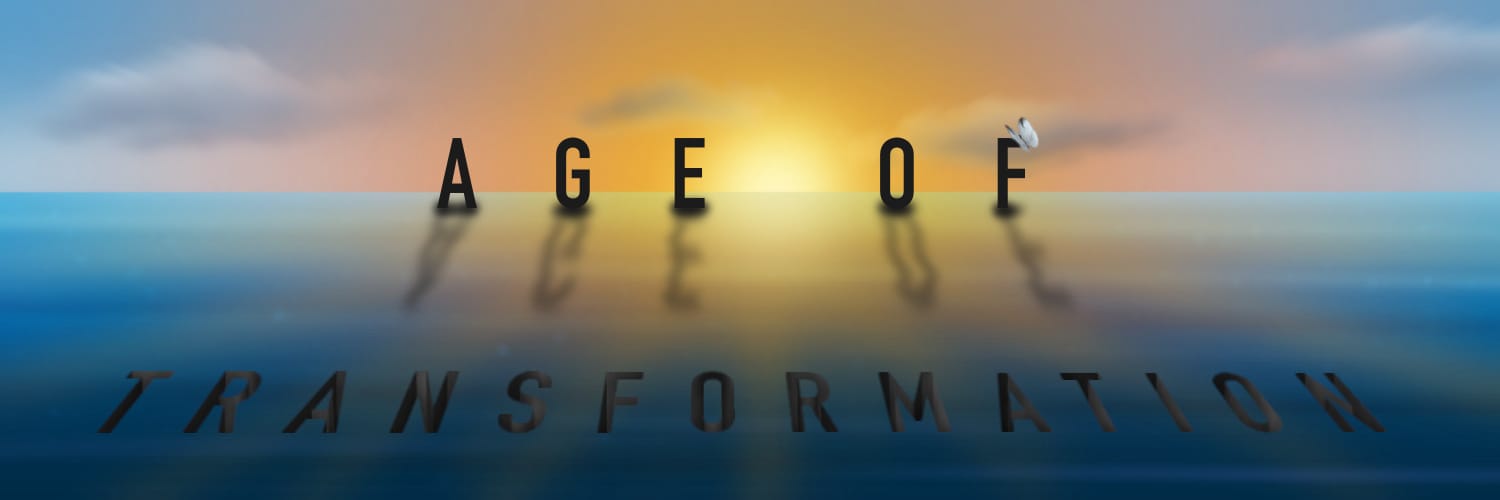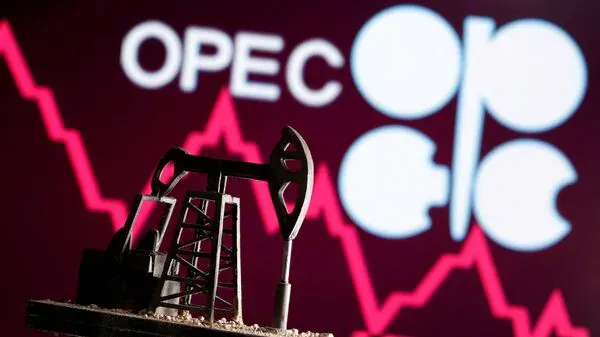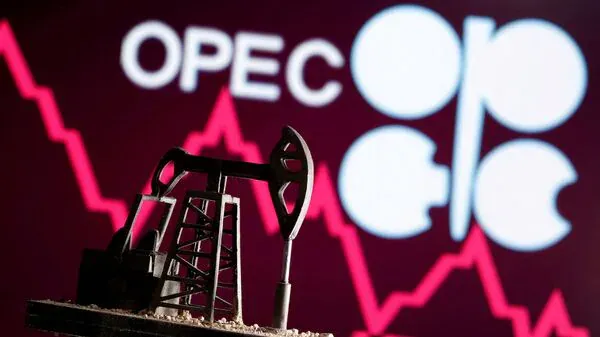This week something unprecedented happened. Fifty-four countries came together and agreed to the most ambitious action agenda on climate change ever contemplated in Africa.
Many of my fellow climate activists are concerned about the flaws and limitations of the final Nairobi Declaration which came out of the summit. And while it’s essential to be critical – because without accountability we cannot self-correct and evolve – we also need to recognise a step forward for what it is.
And the Nairobi Declaration undoubtedly represents an unprecedented milestone on ecological awareness and action for both Africa and the world at large.
Holding ourselves back
Of course, with extreme weather once again reaching record levels around the world this summer, largely due to climate change, it’s easy to feel both alarmed and despondent about our planetary prospects.
Yet even though all the evidence suggests we’re already entering the climate danger zone - well before we breach the 1.5C ‘safe limit’ recognised by scientists as the threshold beyond which dangerous climate change becomes inevitable – the speed of transformational change continues to be surprising.
A systems approach suggests that the way forward lies in amplifying the positive levers of transformation that will accelerate our pathway towards a new clean energy system, while mitigating as much as possible the barriers along that pathway.
But for this to happen requires a mindset shift as much as it does a technocratic adjustment. For too long, we’ve been bogged down by the spectre of collapse. As real as the risks of failure, ecological disasters and societal breakdown are – real because these are not far-flung threats but grim realities escalating even as I write – it has induced a psychological reaction that could be our own undoing.
By fixating on what is going wrong, we are in danger of failing to recognise or understand that even these monumental problems are signals of a great shift to a different system, with the opportunity to shape that system as it emerges into something new and beautiful.
To my mind, this is one of the biggest obstacles to transformation – and it’s something that strikes at the heart of the human condition. If you’re someone who’s had to grapple with their own personal demons, baggage, traumas and so on (who hasn’t?), you’ll be familiar with the huge significance of the breakthrough-recognition that in order to ‘move on’ with your life, you need to be able to ‘let go’ of the past and be ready to write your own story afresh.
We have two options ahead: we either write the story of the future afresh, or we get pulled into the vortex of mourning our traumas.
For instance, at an individual level, the purpose of trawling through your past, your emotional challenges, your breakdowns and so on is to be able to see how they have shaped the tendencies and inclinations of your personality today – not so that you can wallow in them, but so that by seeing how those tendencies and inclinations are shaping your choices, and therefore your life, you can change those choices and so transform your life, become someone new, unbounded by the limits of the past that shaped you.
That psychological journey of self-liberation applies on a planetary scale, and is in some ways missing from the wider social change and environment movements. By fixating almost exclusively on the problems of our societies, and by training ourselves to be skilled only at detecting and understanding those problems, we can end up being trapped by them – unable to see beyond them, and unable to recognise emerging solutions that can be improved and adapted as we apply them.
Only through a mindset shift that is able to envisage the possibility space for a new world, can we bring it into being by intentionally recognising and focusing on real, positive developments that need to be accelerated.
It’s for this reason that I’ve been excited by a convergence of events over the last few weeks and months pointing to a major shift in the global geopolitical order – and indeed the global energy system. By understanding these shifts, we can accelerate them in the most useful directions, while removing the barriers.
Africa shift
A number of milestone commitments have come out of the Nairobi Declaration which have been hugely impressive. But the international media has barely registered their significance, even as bits of them have made headlines.
Firstly, we’ve just had 54 African nations sign up to the goal of expanding Africa’s renewable energy production from its current level of 56 gigawatts (GW) to 300 GW by 2030. That’s a colossal six-fold increase.
Some might immediately respond to this noting it’s not fast enough given the scale of the climate challenge. And of course, it isn’t. But let’s just take stock of what’s happening here.
A year ago, there were no such commitments at all on the table. Now we’ve had an exponential growth target in clean energy endorsed by all the countries of Africa, with a call for the international community to provide support to make this happen.
This has never happened before.
Make no mistake – this is not the end-point. It’s just the beginning. While recognising that we can and must move faster, we also need to applaud this progress, and double-down on it by doing what we can to make it happen. The next step after this is to see if we can accelerate it further – but we won’t get anywhere near that if we simply dismiss it as ‘not good enough’ and go back to despair.
Secondly, the Nairobi Declaration also made clear that to move toward that target is going to require the international community to fix climate financing for Africa and poorer countries overall. The declaration laid out a number of crucial structural changes across the “multilateral financial system”, the cost of lending, debt relief mechanisms, measures to de-risk private capital, and many other approaches to support Africa’s efforts to adapt to climate change and accelerate its renewable energy transition.
This includes aiming to increase the finance capital flowing into Africa’s renewable energy sector by ten times.
What many haven’t realised is that a driving force behind these milestone commitments has been the UAE – yes, the Middle East’s third largest oil producer which holds the COP28 presidency (the UN climate negotiations to be hosted in Dubai later this year).
Dr Sultan Al-Jaber, COP28’s president-designate (to whom I wrote an open letter earlier this year) played a key role in pushing not only for ambitious renewable energy commitments to be adopted at the Africa climate summit, but also in attempting to show how investing in the sector at scale can be an attractive commercial prospect.
Before the summit, Dr Al-Jaber, President William Ruto of Kenya, and the chair of the African Union Commission (the secretariat for the 54 member intergovernmental body) released a landmark joint statement endorsing the goal of “tripling global renewable energy capacity and doubling the rate of energy efficiency improvements”.
Currently, the COP28 presidency has put the goal of getting a global agreement to triple renewable energy capacity at the top of the political agenda. While I’ll be the first to point out we need to move much faster (and in fact did so), the fact remains this is the first time a global renewable energy target has ever been touted by any COP presidency. That’s a third key milestone.
But that wasn’t all. At the Africa climate summit, Sultan Al-Jaber did something else that no other previous COP presidency has ever done. He put his money where his mouth is. Dr Al-Jaber pledged $4.5 billion to kickstart investments in African renewable energy.
Most of the media stopped at reporting this initial investment. They didn’t report that it was designed to mobilise some further $13 billion or so in project finance from a consortium of UAE energy companies– and that the idea was to, in Dr Al-Jaber’s words, “clearly demonstrate the commercial case for clean investment across this continent”.
Most of the press also didn’t mention that this was part of a wider programme of activity started last year by the UAE, aiming to provide 100 million people in Africa with access to renewable-powered electricity by 2035.
For all the criticisms of COP28 that have come out from the West, it's clear to me that the UAE has already done an order of magnitude more than any other COP presidency has ever done in backing renewables in Africa, and certainly far more than Western governments.
As observers on the ground noted, it was Al-Jaber’s pledge that made a tangible difference at the summit itself. By the end of the summit, it had racked up a total of $23 billion in pledges to climate projects from governments, investors, development banks and philanthropists. This revival of optimism about climate financing – backed by the presidency of the next round of climate talks - is pretty extraordinary, and is the fourth milestone.
Al-Jaber also told the summit that he believed the entire global financial system needed an “upgrade” in order to fix climate financing. And this, too, is the first time that a COP presidency appears to be genuinely trying to do something about the fact that it is richer Western governments who have consistently refused to deliver on the pledge made 14 years ago for $100 billion in climate financing for poorer nations.
Many of the structural problems highlighted in the Nairobi Declaration are being actively discussed by senior experts from the world’s top financial institutions, brought together by the COP28 presidency. There is now an emerging consensus on this in sight, in a way that’s never been visible before – with everyone from folks at the World Bank to the Global South all agreeing that restructuring the root and branch of climate financing must be achieved at COP28.
The BRICS shift
The Africa climate summit showed that despite fundamental disagreements, the 54 members of the African Union were able to form a united front on climate change.
Yet just a few weeks earlier, we had the BRICS summit in South Africa which saw the bloc, previously comprising only Brazil, Russia, India, China and South Africa, expand to include Argentina, Ethiopia, Iran, Saudi Arabia, Egypt and the UAE.
This, too, represents a fascinating geopolitical shift. While most Western pundits viewed it with scepticism – assuming that internal wrangling will never permit the BRICS to act as a cohesive force in the international system that might rival Western power – they are once again underestimating how rapidly the tectonics of the geopolitical order are reshaping.
Curiously, the expanded BRICS simultaneously encompasses not only some of the world’s biggest fossil fuel producers (accounting for 42% of global crude oil production) but also some of the world’s biggest producers of renewable energy.
For instance, Brazil generates the bulk of its electricity from renewables, and post-Bolsonaro is on an exciting pathway toward slowing and eventually halting deforestation in the Amazon, one of the most vulnerable ecosystems in the planet.
India is already the third largest renewable energy producer in the world, while China is the top global producer of solar, wind and electric vehicles.
By 2030, Argentina is aiming to get 57% of its power from renewables, and both Ethiopia and Egypt have signed deals this year with the UAE’s state-owned renewable energy giant, Masdar, which cumulatively have resulted in Masdar becoming the largest renewable energy operator in Africa.
With energy being the cornerstone of economic flows, this signals a tectonic shift in the global economy which Western observers ignore at their peril.
A historic opportunity
Both these summits suggest that despite all the pessimism, there is a chance to reach global deals at the next UN climate summit (COP28) which could accelerate transformation in unexpected ways.
Power in the international system is shifting rapidly away from the old centres of power associated with the Western heartlands of neoliberalism – emerging economies across the Global South from the Americas, to Africa, to Asia are forging networks and ties at an unparalleled pace. Despite their disagreements, they are showing that they can overcome these to reach unity on shared issues.
The global geopolitical order is at the dawn of a restructuring that will increasingly confound and surprise observers in coming years.
As this global restructuring accelerates, it’s opening up new opportunities. At the coming COP28 negotiations, under the UAE’s presidency, there two major global agreements that could be possible. One of them is about tripling renewable energy, and the other is about “phasing down” fossil fuels ending unabated fossil fuel emissions.
Now, I’ve already aired my concerns about the limitations of these proposals. But now I want to do something else – I want to explore their strengths and implications from a systems point of view.
Triple renewable energy
Let’s start with what Dr Sultan Al-Jaber has proposed as the global goal of tripling renewable energy by 2030, with a further doubling by 2040.
From a systems point of view, if adopted, the tripling target will actually accelerate renewable deployment far faster than the target itself. And that will have huge system-wide implications for the scale and speed of the energy transition.
In May 2023, Oxford University’s Smith School of Enterprise and the Environment published an analysis based on an empirically-validated experience curve cost forecasting method (similar though not exactly the same as the method used at RethinkX where I was director of research communications - see our report where I was lead contributing editor).
The Oxford analysis showed that if the COP28 proposal of tripling renewable energy capacity out to 2030 were undertaken, it would drive global average costs of solar power down by a further 40-50%. “In all cases”, the paper concluded, “the median of the cost forecast is well below unabated fossil fuel generation costs”.
This is extraordinary. Because if the tripling target means that solar costs will become so low that they are even more competitive with fossil fuels (to around $25/MWh, compared to the current gas costs of $93/MWh globally – so almost three quarters less), this has only one fundamental implication: driven by economic dynamics, the far cheaper cost will accelerate solar deployment even faster than expected and rapidly disrupt oil, gas and coal.
If we manage to get a global agreement to triple renewable energy capacity worldwide, this will be a massive breakthrough that will tip the scales economically in favour of vast increased investments. That, in turn, will accelerate the process of deployment and incentivise efforts to unlock the financing required especially in the Global South. And as costs increasingly decline during the deployment phase, it will only accelerate the deployment.
There’s no other way of putting this. What Dr Al Jaber is proposing entails the rapid disruption of fossil fuels over the next two decades. This is an unassailable economic fact.
And I just want that to sink in a moment. This is one of the largest oil producers in the world going around actively promoting a programme of action that will disrupt its own main source of revenues by which it’s been able to grow and industrialise its economy over decades.
This is crazy. Nothing like this has ever happened before. I think, from a systems perspective, that it’s hugely significant – it shows that on a global-level, we are reaching an inflection point in the energy system where the fact that the future is going to be one without oil is unavoidable, and increasingly recognised.
In 2015, for instance, the UAE’s Crown Prince Sheikh Mohammed bin Zayed gave an unusual speech to UAE citizens, where he underscored the demise of the oil age by mid-century:
In 50 years, when we might have the last barrel of oil, the question is: when it is shipped abroad, will we be sad? If we are investing today in the right sectors, I can tell you we will celebrate at that moment.
In other words, I think the UAE has recognised that fossil fuels are not the future – and its presidency of COP28 is an effort to get ahead of this reality.
Fossil fuel phase down
I’ve also been thinking about the COP28 aim to get countries to agree to phase down fossil fuels, and in particular eliminate carbon dioxide emissions from fossil fuel production.
We’ve never had a major oil producing nation repeatedly telling the world both that fossil fuels will inevitably need to be reduced – at a speed determined by how fast we can scale up alternatives; and eventually phased out. And in the meantime, to “phase out” fossil fuels which are “unabated” – where carbon emissions are still being released.
Let’s imagine for a moment that such a global agreement was actually reached at COP28. What would it entail? It would mean that for the first time in history, the world has agreed on the target of getting rid of fossil fuel production which is generating carbon emissions – with the only fossil fuels being permitted involving mechanisms to capture and store carbon.
That in itself would provide a global platform to pressure governments to stop consuming ‘unabated’ oil and gas – a major step toward the goal of completely phasing out fossil fuels – which would further empower efforts to exert pressure on oil and gas companies themselves to do more to invest in carbon capture and storage.
As I’ve written before, carbon capture, utilisation and storage (CCUS) is not currently commercially viable. And I’ve been an ardent critic of how companies like ExxonMobil and BP have used CCUS to justify business-as-usual. We should certainly be wary of the danger that carbon capture is abused as a fig-leaf to continue pumping out unabated fossil fuels at pace.
But we also have to face up to some hard facts. We’re already in the climate danger zone. And there’s no way that global oil, gas and coal production is suddenly going to just stop. If you’re bullish, you’ll expect the clean energy transformation to accelerate and complete over the next two decades – if you’re more pessimistic, you’ll expect it to take three maybe four or five decades.
The global energy phase shift is unstoppable (bar a global catastrophe), but exactly how fast it happens depends on societal choices.
In this context, what do we do about the fact that we’re probably going to be relying on fossil fuels for the next few decades? What do we do about that? In my view, legitimate concerns about CCUS need to be addressed, but it would be high foolishness to simply shut it out of the picture. On the contrary, we need to do our best to limit and eliminate currently increasing carbon emissions from all fossil fuel production that’s obviously going to continue happening during this transition process, while the new clean energy system has still not yet scaled up.
And there may be ways to make it commercially viable – especially by, for instance, powering CCUS with clean energy superabundance, which could dramatically reduce its currently exorbitant energy costs according to the founder of Europe’s largest solar energy company.
In a renewable energy system that is supersized by three to five times demand, not only are the overall system costs to build it far cheaper due to the reduced need for storage, but we’ll be able to produce superabundant quantities of clean electricity at zero marginal costs – an ideal platform to cheaply power not only things like CCUS and direct air capture, but also the circular economy.
What we need to do is ensure that as much as possible, the costs of CCUS are not borne by society, but by energy companies – who need to do far more to demonstrate their commitments to decarbonisation.
That’s why I’m seeing these three major geopolitical events – BRICS, Africa climate summit, and the coming UN climate talks – as milestones that are opening up the possibilities for change. We need to ensure we don’t squander these possibilities, but seize them and accelerate them.
Scaling the inflection point
As the COP28 summit approaches, my message for my fellow travellers in this journey to grapple with our complex global challenges is that while we have so much to be worried about, we have much to hope for and play for.
There is a global phase shift underway right now.
We can see the signs of it all around us, if we care to look.
Global South countries are increasingly rising up, and power is shifting toward emerging economies.
A global consensus is emerging – among both clean energy pioneers and even some of the world’s biggest fossil fuel producers – that the age of oil is over, and that we must do all we can to accelerate the clean transformation of the global energy system in a way that is just.
By focusing on these positive signs of transformation, even as we recognise the extreme dangers and risks we’re navigating, we can push the right levers to create a spiralling set of stepping stones toward the future we want to create.
If you appreciated this piece, you can keep this free newsletter alive and thriving by joining our community as a Supporter for the price of a cup of coffee a month.
Already have an account? Log In







